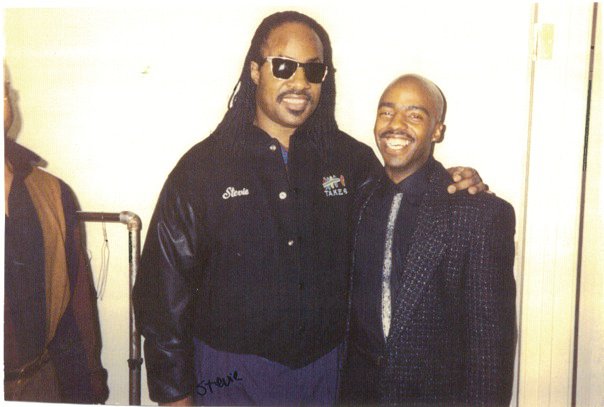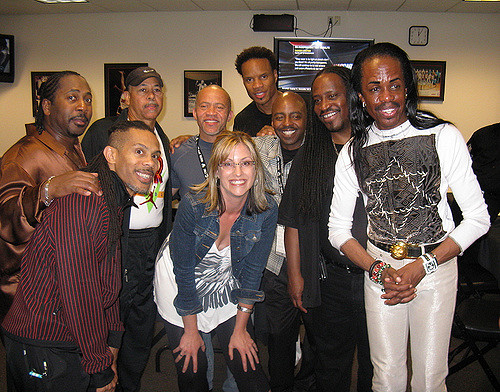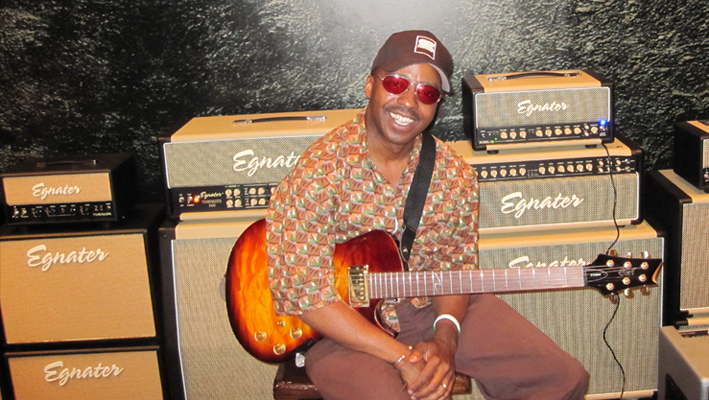Gregory Moore a.k.a G-MOE is a soft spoken man who expresses himself vividly through his body of work. Mr. Moore was one of the world class guitarist for the legendary Earth, Wind, & Fire but his musical contributions do not stop there. They could because that’s quite a feat in and of itself but that’s not how “G-Moe” is wired. Even back in his youth he knew that music was his calling and set out to perfect his craft. Years later G-Moe would be in L.A. working along side the biggest names in the entertainment industry and his body of work would extend into theme music for television shows and beyond. Below we get to ask Mr. Moore five questions.

1. When a skilled guitarist joins a creative circle of fellow musicians and the leader(s) lay out their initial idea how do you choose the correct sound to present for that vision? This is important as all the components of the song must come together and present “the sound” that will propel the work into the mainstream. Certainly the guitar work stands out.
First you have to keep in mind what the leader/producer had in mind for that song what style you are going to play. They have me in mind for that song or creations because they felt that I could bring a certain feel to that song. Secondly you have to to listen to all your fellow musicians and find your own space, stay out of the way and don’t step on another person idea, try to compliment the song and leave your ego at home because everyone has something to bring to the table..)

2. Your skills are opening doors that allow you to grace both the studio and the stage with the greatest artists of our time. Somewhere, in the vast majority of their songs, a guitar solo is presented, and when it is the musician is showcased. In regard to stage presence what advice would you share with an aspiring guitarist?
You need to always know your place and not try to out shine the artist. No, they don’t like that but then again some artist do like it, Ms Patti Labelle said in the dressing room, “God gave you all this gift and he wants you to do your best because if you don’t use your talent he can always take it away.” When the artist give you a solo take it and play your heart out!
3. Acoustically speaking, which of the great halls, performing arts centers, have you found to be exceptional? Acoustically speaking one of my favorite places I really enjoyed playing was Radio City Hall in New York , A very classy place. I played several time there with Marvin Gaye, The Temptations, and Maxwell.
Acoustically speaking one of my favorite places I really enjoyed playing was Radio City Hall in New York , A very classy place. I played several time there with Marvin Gaye, The Temptations, and Maxwell.
4. Some artists enjoy, from time to time, performing for smaller audiences in subtle listening rooms. When you perform at such venues do you choose different equipment to support the performance at these more intimate events? I love playing small venues. The intimacy going in front of all those pretty women and playing for only them. They get a kick out of that!!!! Yes, I have different amp setup depending on the size of the room.
I love playing small venues. The intimacy going in front of all those pretty women and playing for only them. They get a kick out of that!!!! Yes, I have different amp setup depending on the size of the room.
https://www.youtube.com/watch?v=WTaWRvzzA0w
5. Finally, there is a fine line between releasing the homogenized sound that can be produced in the studio or releasing a somewhat raw presentation that contains any frailties. As we move closer to virtual online concerts do you envision more raw emotion releases being presented or more of a cleaned-up version being showcased?
Sometime I like the raw emotional sound and sometimes I like the clean sound depending on who I’m playing with. I always played the raw sound with Earth Wind Fire but if I was playing with someone like Howard Hewitt I would play smooth like his voice and compliment him.
To know more about G-Moe, please visit : https://www.facebook.com/gregory.moore.14855
Interview by John Houston













